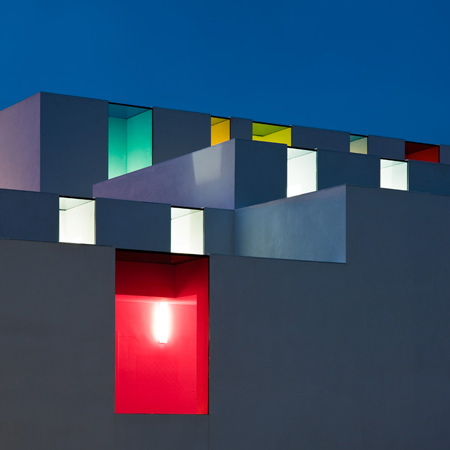
Spanish architect Alejandro Munoz Miranda’s kindergarten in Granada is designed for children up to three years old and has windows in rainbow colours.
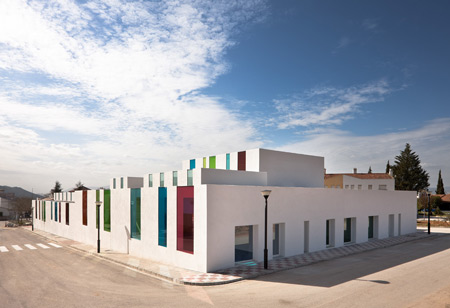
It is built around a central courtyard onto which all the classrooms open.
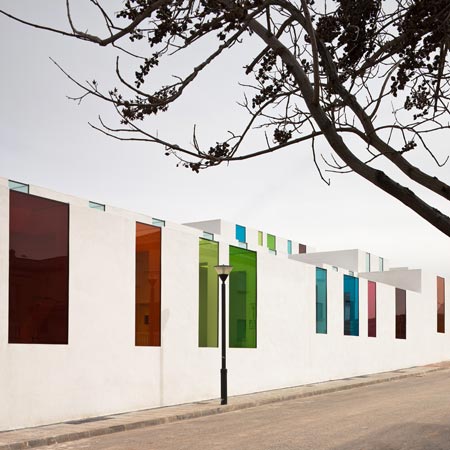
Communal spaces such as corridors are scattered with multicoloured light while the windows in classrooms are colourless.
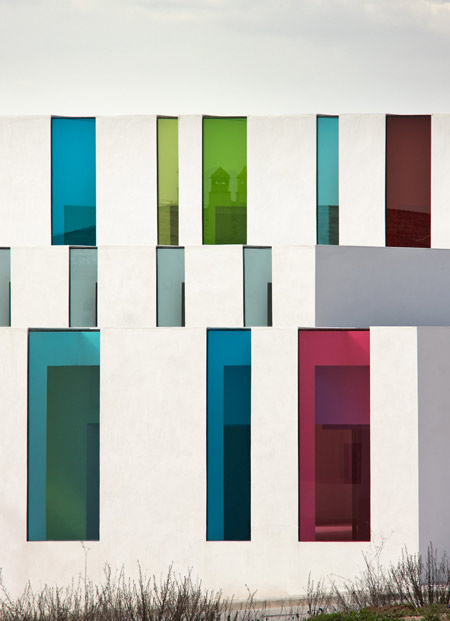
Photographs are by Fernando Alda.
The following information is from Alejandro Muñoz Miranda:
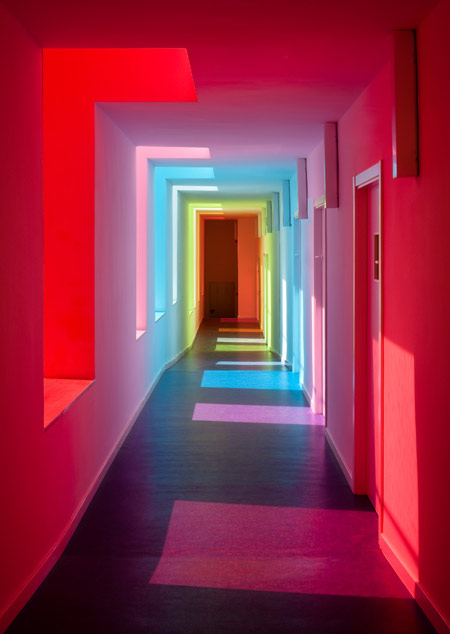
EDUCATIONAL CENTER EN EL CHAPARRAL, ALBOLOTE (GRANADA)
The project is designed as a variable section of wall and ceiling that involves compressing and decompressing the space accommodates.
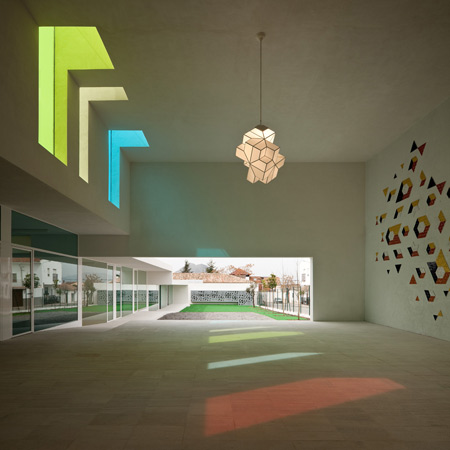
The change of section depending of the uses (corridor / access-bathrooms / classroom / porch (outside covered corridor) / garden and outside covered playground), the sun’s movement and the longitudinal slope of the plot are responsible to design interior spaces that open to garden and outside covered playground.
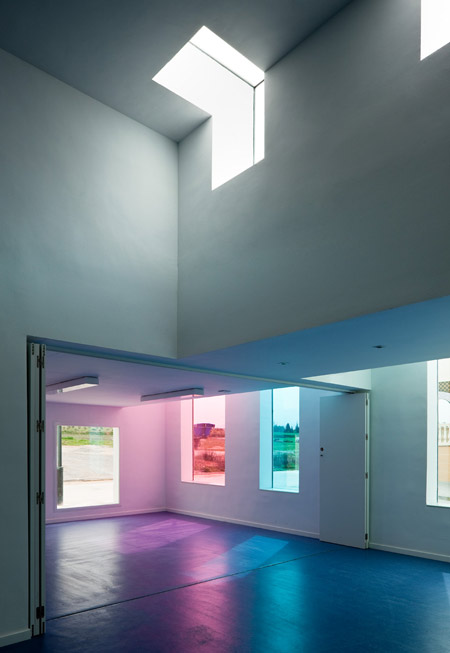
The compression-decompression game makes its effect when changing space both longitudinally and transversely in the sequences: corridor / access-bathrooms / classroom / porch / garden-outside covered playground (across) or classroom / bedroom / classroom (longitudinal).
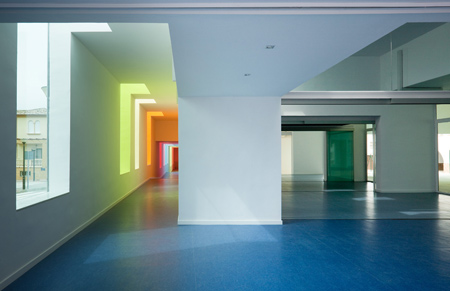
The orientation in space makes the classroom uncompressed glass cracks appear in the upper corners of South tightening diagonal space in the North to the ground facing the interior garden and covered with large windows.
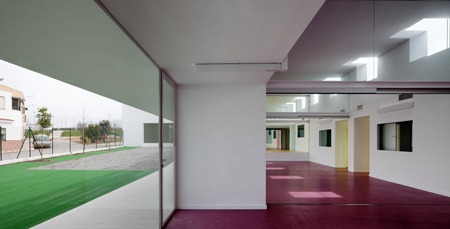
These fissures South controlled light will be colored (rainbow color gamut) in dynamic areas of the corridor or in the outside covered playground. Inside the classroom, these cracks will be light South colorless glass.
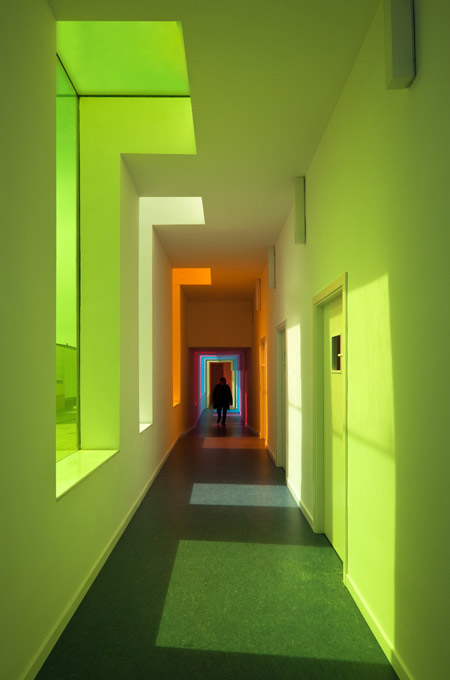
Versatility also arises in the operation of classrooms by level of education (two classrooms for children from 0-1 year with bedroom, two classrooms for children from 1-2 years with bedroom and three classrooms for children from 2-3 years without bedroom).
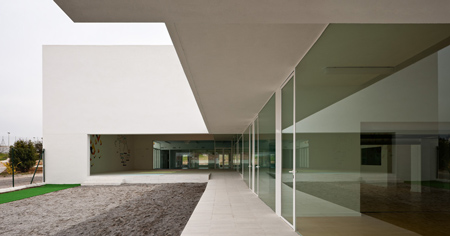
It is proposed that all classrooms in the same level can raise the possibility of creating more space for group activities, show themselves to the spatial continuity of the upper parts of each room separated by glass.
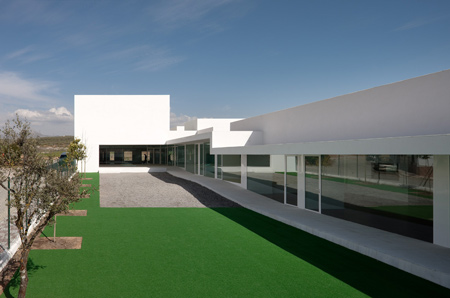
Moreover, the idea that everything revolves around outside covered playground, and makes it as the heart of the educational center, which is linked by a continuous covered porch on the garden with all classrooms. Inside, the outside covered playground connects to the classrooms with the corridor on the South side. To the East lie the kitchen and dining areas, administration and gym closely linked to the corridor.
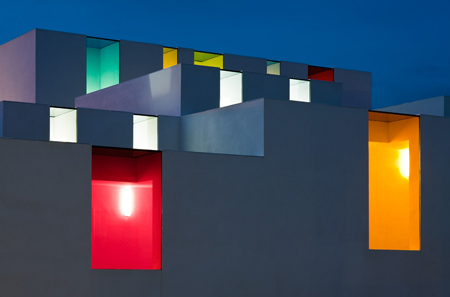
Outside, the use of white massive volumes makes the integration is adequate in El Chaparral, a district of Albolote that emerged as village of colonization in the 50s.
Click for larger image
Click for larger image
Click for larger image
Click for larger image
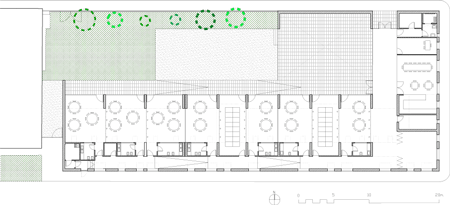

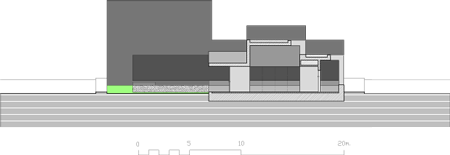





所有评论